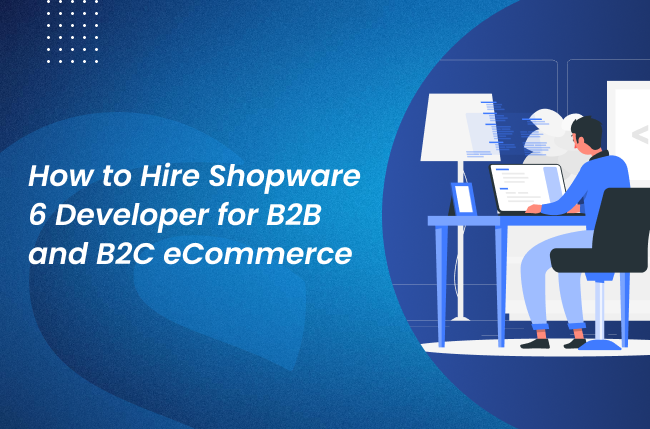In today’s fast-paced online world (and especially in eCommerce), artificial intelligence in eCommerce is not just the way of the future — it’s the present pack leader, and it is changing how online businesses function and serve, and how consumers shop. Whether you know it or not, AI is changing the game. Personalized product recommendations to automatic customer service: AI tech is powering better, intuitive, and profitable online shopping opportunities.
The AI Revolution in Online Retail
Online shopping has always jumped on new technology trends, but AI adoption has really taken off in recent years like nothing we’ve seen before. Retailers everywhere are pouring money into AI tools to stay ahead of their competition and keep up with what customers expect from them.
AI helps online retailers sift through tons of customer data to discover what people really want and how they shop. When businesses truly understand their customers this way, they can create more personal shopping experiences, run their operations more smoothly, and boost their bottom line.
Why AI Matters in eCommerce: Understanding the Core Benefits
Artificial Intelligence benefits for eCommerce encompass the value chain from back-end operations to the front-end customer experiences. Here are some of the major benefits:
1. Enhanced Personalization
AI-based algorithms process customers’ search history, purchase history, and preferences to provide very personalized product recommendation lists. Such a high level of personalization not only serves as a fantastic shopping experience enhancer, but yields a significant increase in conversion rates and AOV (average order value).
2. Intelligent Search Functionality
Intelligent AI-enabled search technology gets natural language queries, typos, and even context. This helps make it easier for customers to find exactly what they’re looking for, which can lower bounce rates and boost sales.
3. Automated Customer Support
Artificial Intelligence chatbots and virtual assistants deliver 24/7 instant customer service, answering questions, solving problems, and helping to guide shoppers along the purchase journey. This leads to better customer satisfaction as well as lowering operational costs.
4. Dynamic Pricing Optimization
Artificial Intelligence in eCommerce enables algorithms to analyze market conditions, competitor pricing, and customer behavior in real-time to automatically adjust prices for maximum profitability while remaining competitive.
5. Streamlined Inventory Management
AI in eCommerce systems can predict demand patterns, optimize stock levels, and prevent overstocking or stockouts. This leads to significant cost savings and ensures product availability when customers want to buy.
AI Applications Transforming Online Shopping
Here are five transformative ways Artificial Intelligence in eCommerce is reshaping the eCommerce landscape:
Smart Product Suggestion Systems
Modern-day AI engines move away from generic “frequently bought together” suggestions. Utilizing browsing behavior, purchase history, and customer segmentations, intelligent systems build truly personalized shopping experiences that do not encroach on consumers but rather present themselves as intuitive.
Intelligent Virtual Shopping Assistants
Contemporary AI-driven assistants make shopping conversational through quick responses to customer queries, facilitating exploration of the product and easing checkout procedures. Virtual assistants offer continuous assistance and make operations very cost-effective.
Image-based Product Discovery
Its breakthrough visual recognition system lets consumers search for products simply by uploading a photo. The easy-to-use method is especially useful in image-centric categories such as apparel, furniture, and home furnishings where regular text-based searching can be inadequate.
Automated Content Creation
One of the most significant uses of Artificial Intelligence in eCommerce is generating engaging descriptions and copy for products and even marketing copy. This allows the burden of content creation on merchants who carry huge catalogs to be significantly diminished.
Predictive Inventory Intelligence
Advanced algorithms screen past sales data, seasonal trends, marketing campaigns, and external variables to predict demand with high accuracy. It allows the retailer to keep ideal levels of inventory on hand, lower carrying costs, and guarantee adequate merchandise availability.
Implementing AI in Your eCommerce Business
Implementing AI in an eCommerce business doesn’t necessarily need to be daunting. Here’s a strategic way of starting out:
- Identify Pain Points: Identify what aspects of your business would be most enhanced by integrating AI—whether customer support, product suggestions, or stock management.
- Start Small: Start off with a single AI solution and review its effect before scaling up in other directions.
- Choose the Right Platform: Many modern eCommerce platforms have pre-integrated AI features available for immediate deployment even without deep technical expertise.
- Partner with Experts: Collaborate with specialized development providers like iCreative Technologies who will be capable of implementing and optimizing AI functionalities for your specific business needs.
- Continuously Optimize: AI systems learn from data—regularly review your performance and refine your implementation for better results.
Conclusion
AI in eCommerce is changing the way eCommerce companies conduct business and customers shop. From automated customer service through to personalized recommendations, the advantages of AI in eCommerce are great and now available on a wider level than ever before. Companies of all sizes now have access to sophisticated AI features on modern eCommerce platforms and can make the shopping experience better and their operations more efficient.
As e-commerce artificial intelligence evolves and grows stronger by the day, companies that adopt these tools capture a considerable competitive advantage. eCommerce companies can implement AI solutions successfully and achieve growth and customer satisfaction through experienced development teams like iCreative Technologies. The AI era in online shopping isn’t on the horizon—it’s already a reality.




